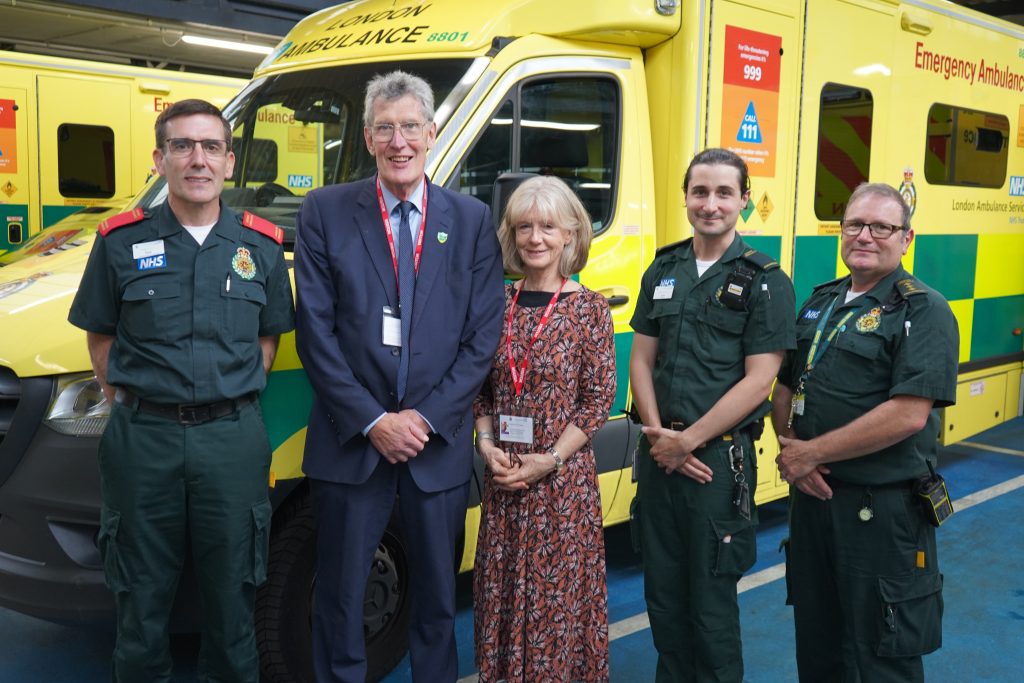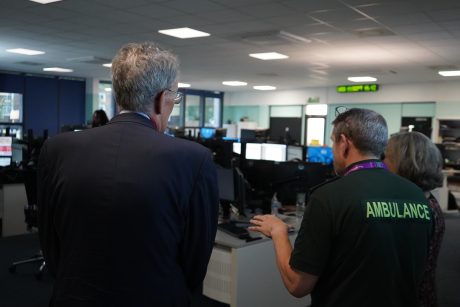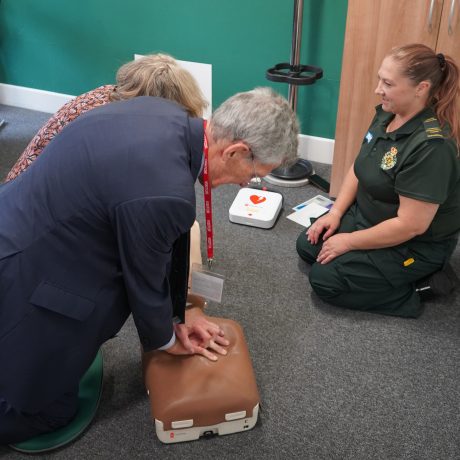Lord Lieutenant thanks London Ambulance Service crews who helped save his life
His Majesty’s Lord Lieutenant of Devon has visited the ambulance crews who treated him after he collapsed in the street in cardiac arrest.

David Fursdon, who is the King’s representative in Devon, visited London Ambulance Service headquarters in Waterloo with his wife Catriona for an emotional reunion with the paramedics who gave him life-saving treatment.
Mr Fursdon said: “I am the luckiest man. I don’t remember what happened but they do. They were there in four minutes and thanks to their expertise, their skill and their speed, I have a second chance at life.
“His Majesty The King did ask me how I was, on a recent visit to Devon. Of course, I told him I had been very well cared for.”
The father-of-three and grandfather-of-six collapsed in Belgravia, in central London, last August. A nearby couple immediately called 999 for an ambulance and started chest compressions – also known as CPR.
A member of the public also brought out a defibrillator from a nearby hotel.
Advanced paramedic Peter Kingsley said: “It is the minutes before an ambulance arrives that often determine whether someone lives or dies.
“In this case passers-by realised he was in cardiac arrest and rushed to help.They started CPR and used a defibrillator.
“Arriving at a scene and seeing a patient has been given that early help, means there is still a life for us to save.”
Ambulance crews battled to save his life
Paramedic Luca Moreschi arrived within minutes and took over the chest compressions.
Incident Response Officer Gino Kempton blocked off the street to give the patient privacy as more ambulance crews arrived and battled to bring him back to life.
A cardiac arrest is when the heart stops beating effectively. It stops pumping blood and oxygen to the brain and other vital organs.
Chest compressions keep the blood pumping while a defibrillator delivers an electric shock to the heart, to restore a normal rhythm.
Mr Fursdon was given six shocks – two before the ambulances even arrived.
Gino said: “We don’t often find out what happens to patients after they have been taken to hospital so it means so much when someone comes back to say thank you.
“We don’t do this job for the thanks, but when it happens, I couldn’t feel more proud and more privileged to do what I do.”
Luca said: “It was a meaningful experience to share a cheerful moment with Mr Fursdon, reflecting on the dramatic event we helped him survive.”
London Lifesaver training
Chief Paramedic Pauline Cranmer hosted the special visit. Mr Fursdon and his wife were also given London Lifesaver training – the simple skills needed to save a life when someone is in cardiac arrest.
The London Lifesavers Campaign aims to create a generation of lifesavers and improve health outcomes by offering free training to schools, community groups and businesses in the capital.
The couple also toured the building meeting call handlers in the 999 control room; paramedics in the clinical hub; and those monitoring and managing incidents across London in the tactical operations centre.
Mr Fursdon said: “The London Lifesavers Campaign is key – it is training people early and building a society that knows what to do in a medical emergency, meaning more lives are saved.
“What a wonderful job you do.”
The Lord Lieutenant is campaigning for more defibrillators in his own region in Devon.
Meanwhile the London Ambulance Charity is fundraising to install more defibrillators in the areas of London where they are needed most. The charity’s flagship London Life Hike takes place this month and is open to the public – join us on Saturday 27 September to raise vital funds.

Follow us on social media: